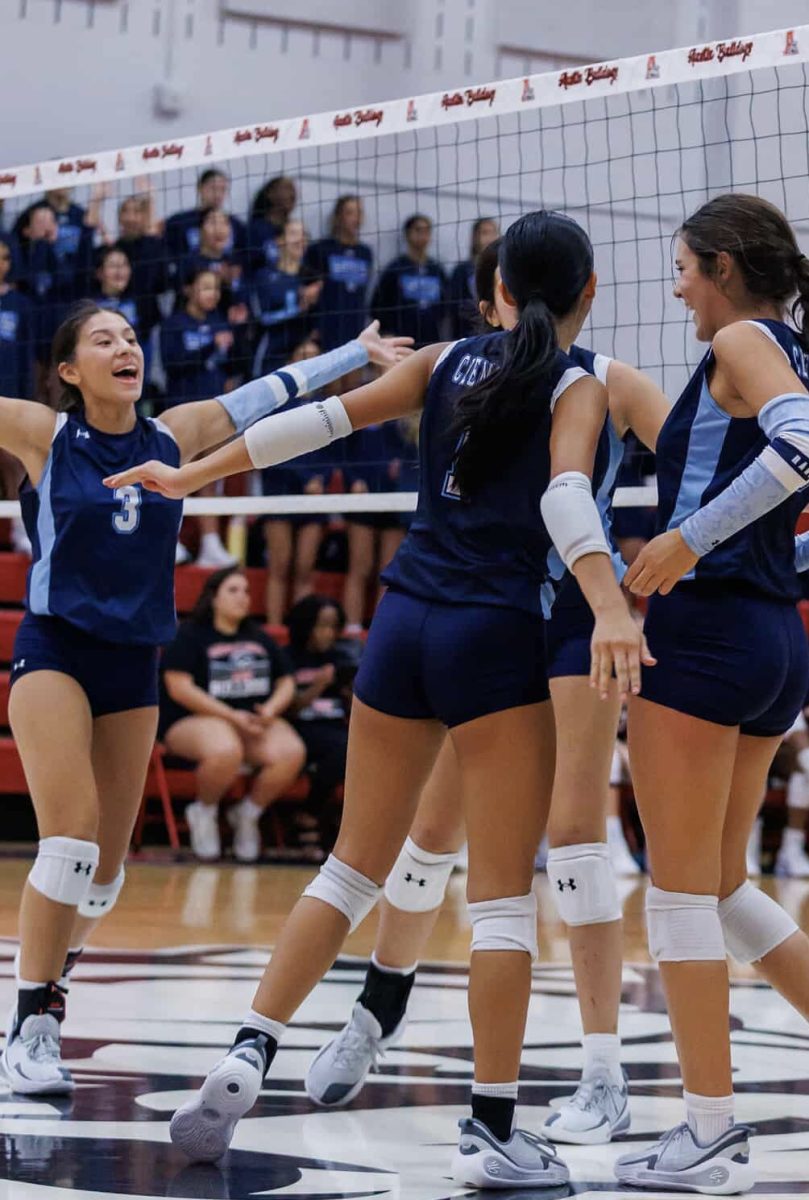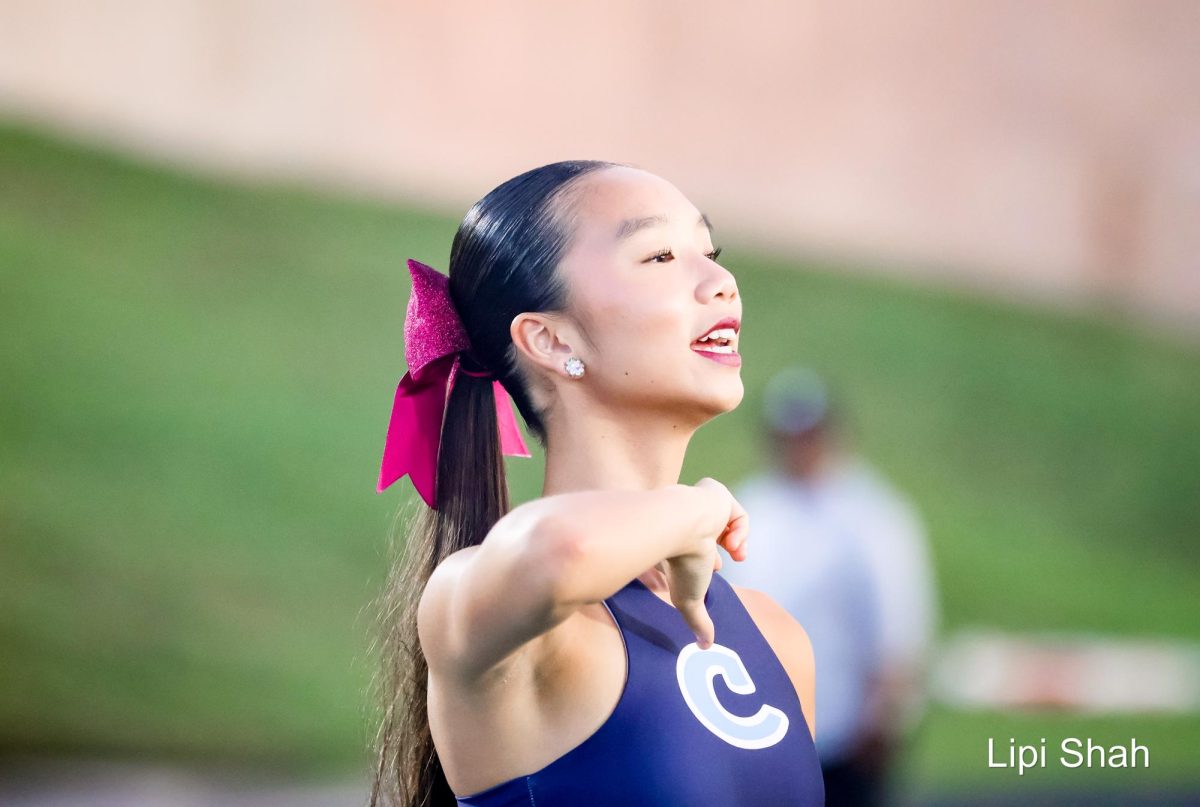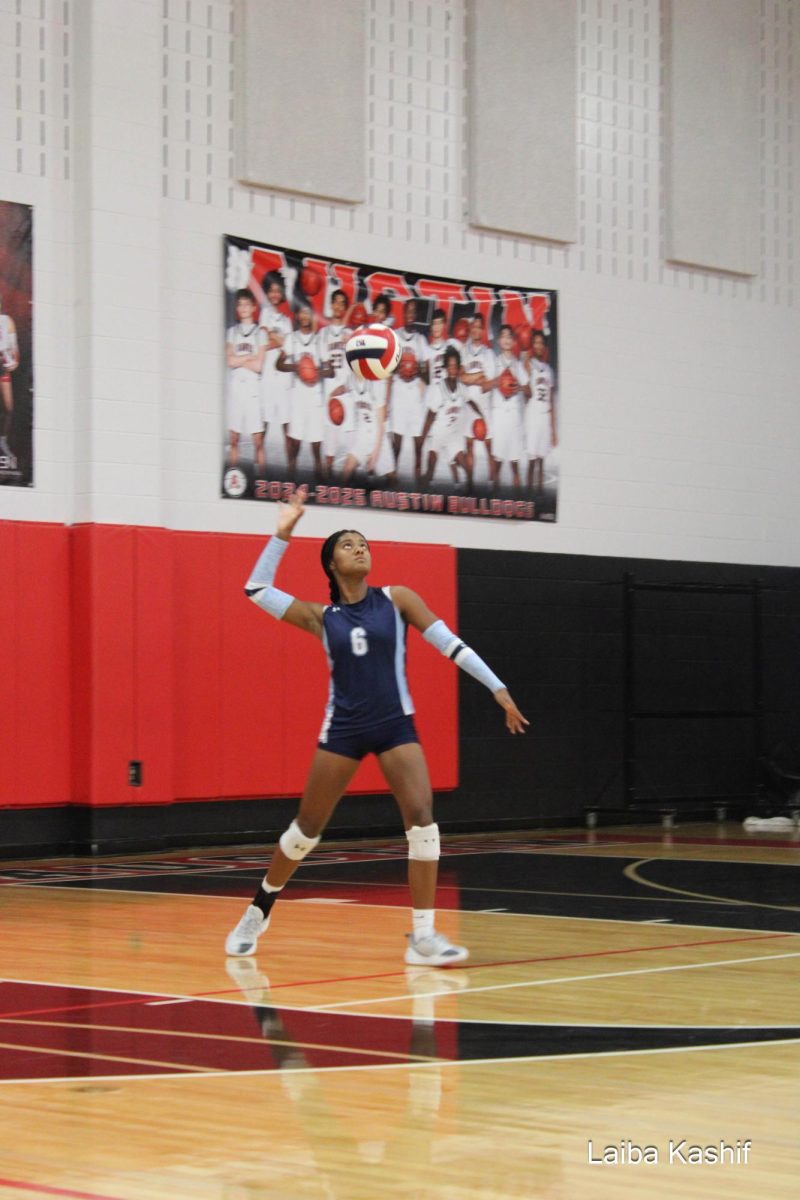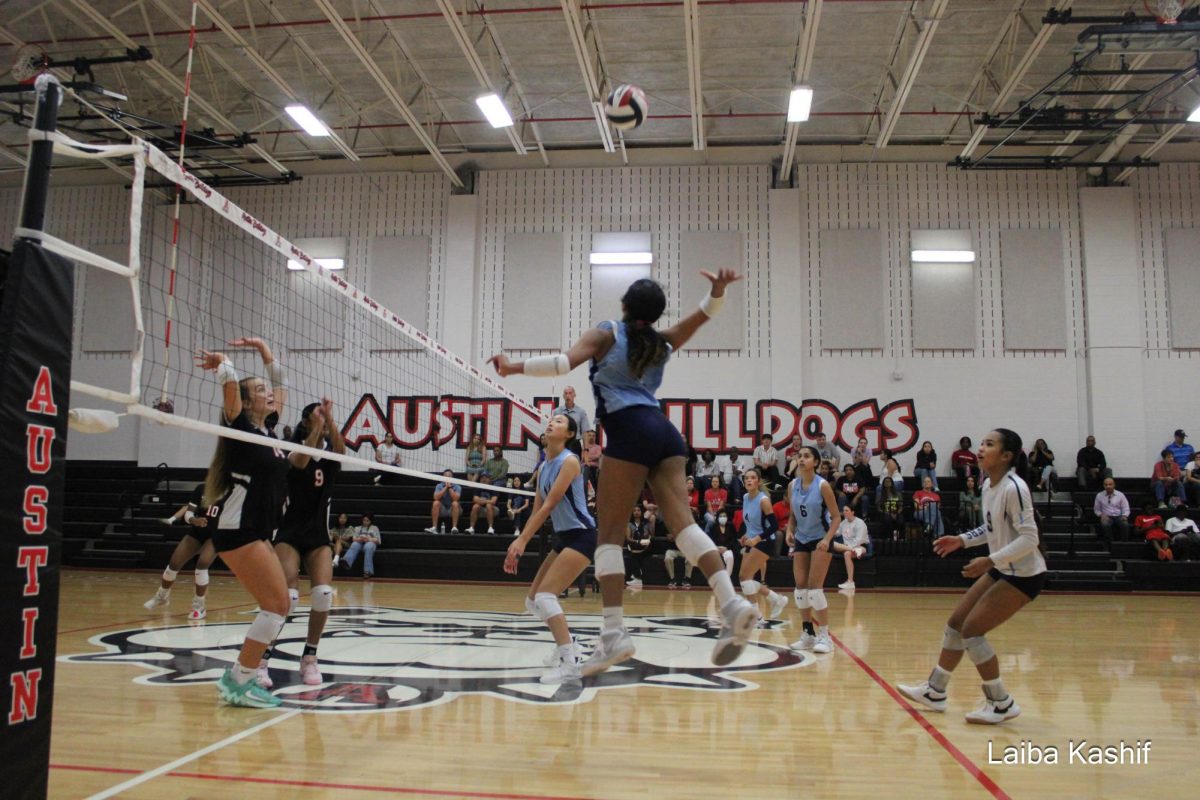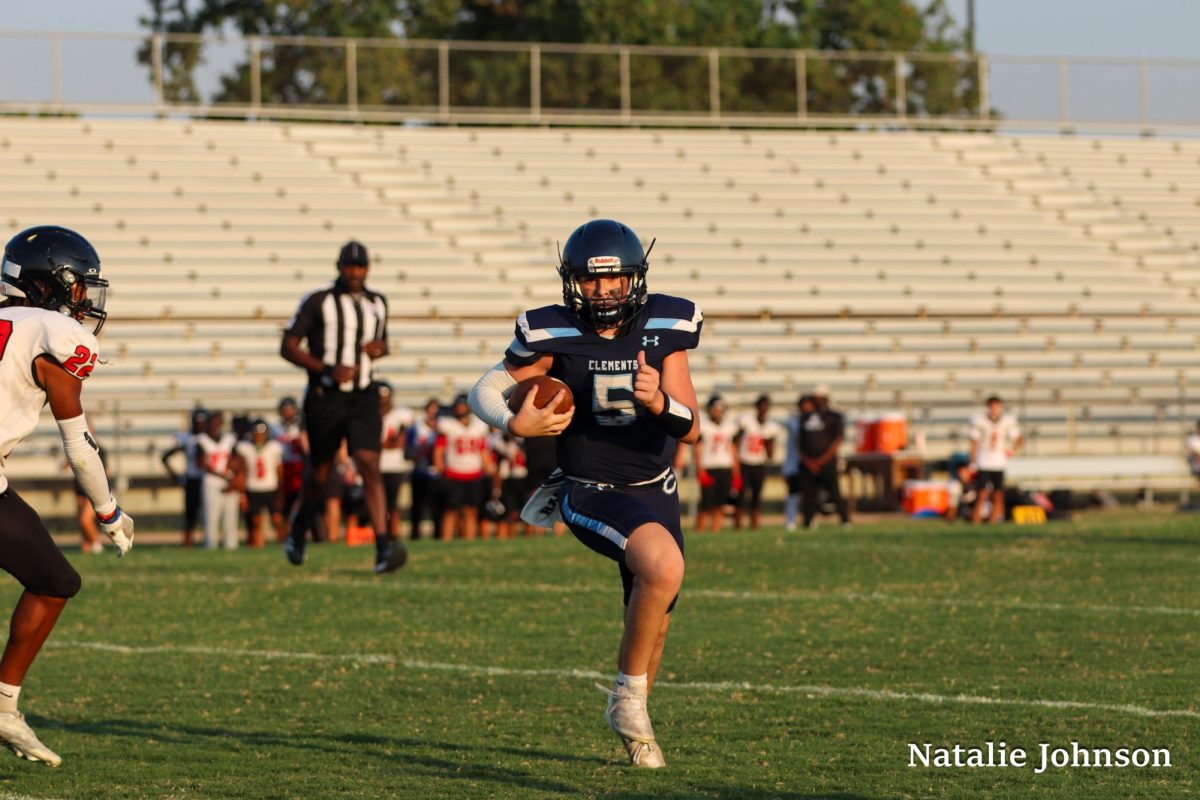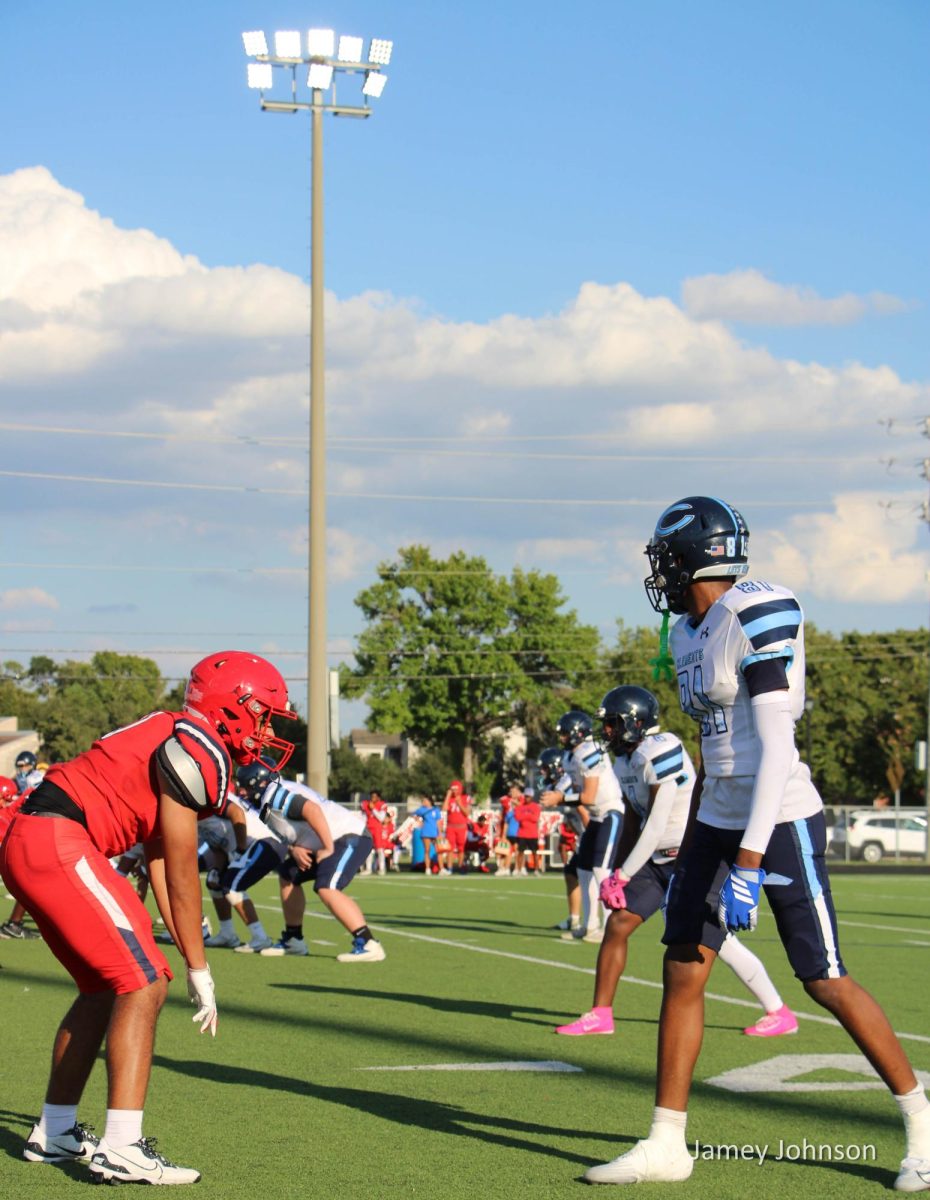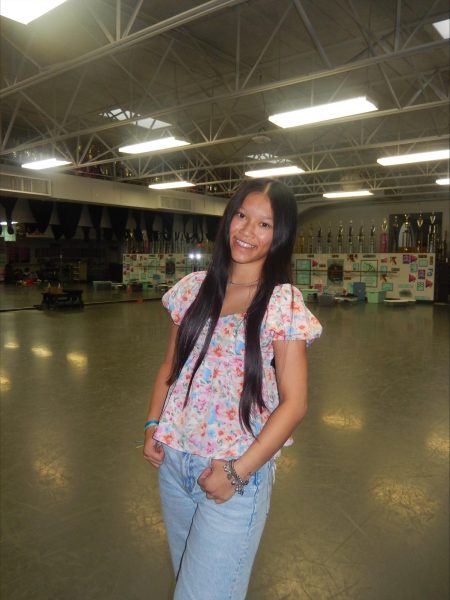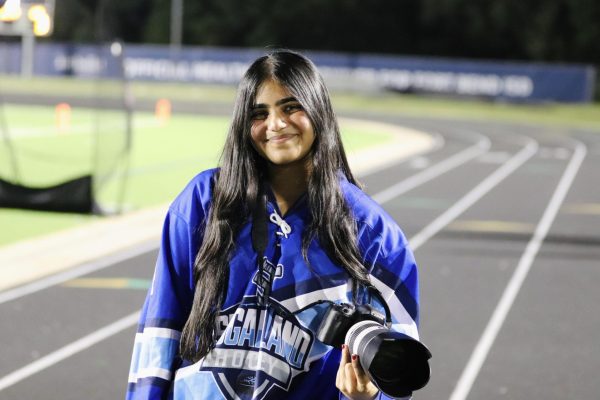Bella Casal is a senior and a volleyball team captain that shows leadership and dedication both on and off the court. With years of experience playing school and club volleyball, she knows what it takes to overcome tough practices, off-season training and team chemistry. In this Q&A, Bella shares her motivation and her role as a captain for a successful season.
Sydney Hudzietz: How long is your season, and how long is your off-season?
Bella Casal: The season lasts from August to October and sometimes it leads into November if we make it to the playoffs. But the off-season pretty much starts right after that, and it could lead all the way until tryouts. We practice all the time in summer. We have different open gyms that you can go to, and we go to SAC (Strength and Conditioning) a lot. So all of us are working out constantly and trying to get ready for tryouts all throughout the off-season.
SH: Is there ever a time during your offseason where you do not feel motivated to train, and what do you do to motivate yourself again?
BC: There’s definitely been times where I’m just super tired, or I have a lot of work and it’s just like, ‘I don’t really want to be working out right now.’ But what kind of motivates me is, if I’m putting in the work now, we’re going to be so much better in season because of just the little things I do. What we talk about in volleyball a lot is [being] 1% better each day. Each time, each practice, each day, each game you’re 1% better than the last. That pushes me through, if I’m not motivated right now, but I’m still going to focus on what I’m doing, whether we’re doing weights or running, because I know it’ll make me a better athlete in the end.
SH: What do you do as a captain to motivate your whole team and get them ready for the next season?
BC: Our team honestly is very bonded. I feel we have a good chemistry. We all get along and I try to remind everyone of that and how much we love each other. So if people ever feel unmotivated, it’s like they’re not in it alone. We’re doing this together. And when the season starts, we’ll be stronger because if your team gets along better, you play better. It’s more fun when you play with people you want to play with and you love to play with.
SH: Are there any specific exercises or drills that help you prepare for your sport? If so, what?
BC: There’s so many different drills we do for volleyball… We start off with what we call military serving. And it’s just serving back and forth to the person right across the net from you. That keeps us practicing our control so that we’re serving to where we want to serve the ball. But it’s also getting our arms warm and making sure we can serve the ball… But we honestly work on so many different things. And especially during the off-season, we’ll do workouts sometimes just for our legs. Or some days we’ll do workouts just for our arms. And so it’s focusing on those things because as a volleyball player, you want to be able to jump high, right? So your legs have to be strong. And then same thing with your arms. If you want to swing, your arms should be strong also. So there’s just so many different components and that goes into that.
SH: What is something a coach has told you that stuck with you when it comes to preparing for a new season?
BC: One of my club coaches… she would always say practice makes permanent. And I’ve always stuck with that for anything I do, like school volleyball too. If you’re practicing a certain way, that’s how you’re going to play. Practice doesn’t always make perfect if you’re not really focused in practice. Or you’re just joking around in practice because that’s how you’re going to play on the court. Especially for school volleyball, a lot of times, before every game we do run-throughs. Which is just us practicing serving, practicing passing, and practicing our lineup for that night. And there’s a difference and you can tell when people are not focused during run-throughs. Whereas when we’re really focused, we’re actually trying to be smart with what we’re doing during run-throughs. And really putting in that focus and that time we have to practice before our game. We do a lot better in those games. So that kind of helps me prepare and that’s the perspective I have.
SH: With volleyball being a team sport, do you ever guys get together and play during your off-season? And how is that different from training sessions during the season?
BC: We have this thing called Spring League. During the spring, we go off and we scrimmage different high schools. And it’s usually during the month of April, My coach puts us into teams and we play our positions. But I think that’s a really good way for us to get back into playing with each other. We start trying out in the summer. Volleyball practically starts before school even starts. We don’t really go outside of school and see each other. But every Friday of the off-season, we would always play games. And they would always group us with each other. So that was just another way for us to keep our chemistry and keep our bond strong.
SH: And then how often do you train with a physical volleyball during the off-season?
BC: We train pretty often. During the school year, whatever sport is in season has priority of the gym. But we would usually play actual volleyball at least once or twice a week during the school week. And then for summer, it would be SSI, so sport-specific instruction. And we would do that either before or after SAC. And every weekday, like Monday through Thursday during the summer, we’d be able to play with volleyballs, play with each other too. And then even outside of school, I would go and have different private lessons or go to different training camps to make sure I’m ready for tryouts also.
SH: And then earlier you said you did club. Do you know how many girls on the volleyball team do club?
BC: Almost all of them. I think there may be a few who don’t. But the majority of the team plays club just because it keeps you with an actual volleyball and playing the actual sport throughout the year because club starts after the school season and ends in May. So then that entire summer, you’re working again for school. But it’s a good way too just to keep us playing volleyball because we only get 50 minutes and sometimes not even on a school day to practice during off-season. That’s why it’s really good for girls to do club, and why a lot of us do it because it gets us still practicing volleyball. And those are weekend tournaments all the time and then twice or three times a week of practices. So our girls are always playing volleyball.
SH: And then is there anything else you need to add?
BC: I think this year our team is really fun, and I’m happy that we’re with a group of girls that we get along with because sometimes you don’t always get that. I mean, I’ve played on club teams where there’s just some girls you can’t really bond with, and it’s just so much harder to play. I’m really excited for this season and for the district to start because I know I’m already having so much fun with my team, and we’re going to continue having fun, especially since it’s my senior year.
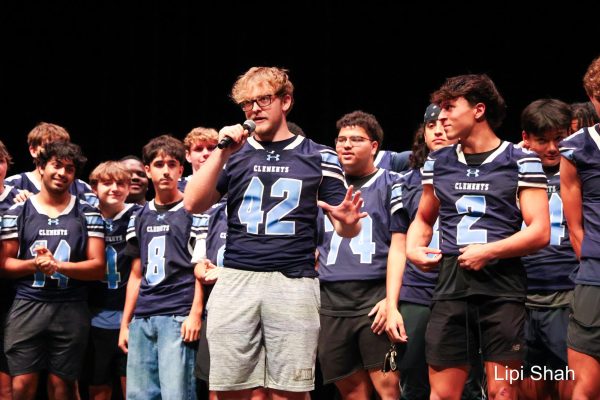
Football can be a tough and challenging sport, but with enough practice one can improve. Off-seasons are there so athletes can stay fit when they are not playing, which allows for a successful upcoming season. Connor Moore is the Varsity football captain and he has had many productive off-seasons. He is currently one of the inside linebackers and he will talk about how important the off-season is.
Sydney Hudzietz: Is there ever a time during your off-season where you do not feel motivated to train? What do you do to motivate yourself again?
Connor Moore: There’s not any specific time, but you get that feeling. I usually watch motivational movies like Rocky. It’s just one my dad watches with me a lot. There’s a lot of inspirational things there. He keeps fighting, doesn’t give up and it kind of helps me.
SH: What do you do as a captain to motivate your whole team and get them ready for the next season?
CM: Just try to have honest conversations with them. Our other captain, Trey, just set up this player-led meeting.We just talked about how we can get better, no coaches or anything.
SH: What do you do if your team is unmotivated?
CM: Keep working at it, day in and day out. Keep talking to them, try to get them to see reason.
SH: Are there any specific exercises or drills that help you prepare for your sport? If so, what?
CM: I usually do whatever our strength coach puts on the board for us. He’s good at doing whatever’s right for the team.
SH: What is something a coach has told you that stuck with you when it comes to preparing for a new season?
CM: Coach Oakley usually says, it is what it is. Bad things are going to happen, you just have to deal with it, get past it, and keep pushing forward.
SH: Since football is more of a team sport, do you guys ever get together and play during off-season? And how is that different from training sessions during the season?
CM: A lot of the guys try to get together to play a little 7-on-7 football with no coaches. It’s not a lot of people, but that kind of makes it nicer. You know who wants to show up and who wants to be there, and you know who wants to put in work when it’s not required.

